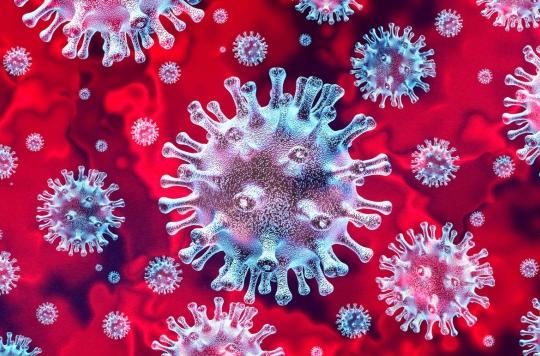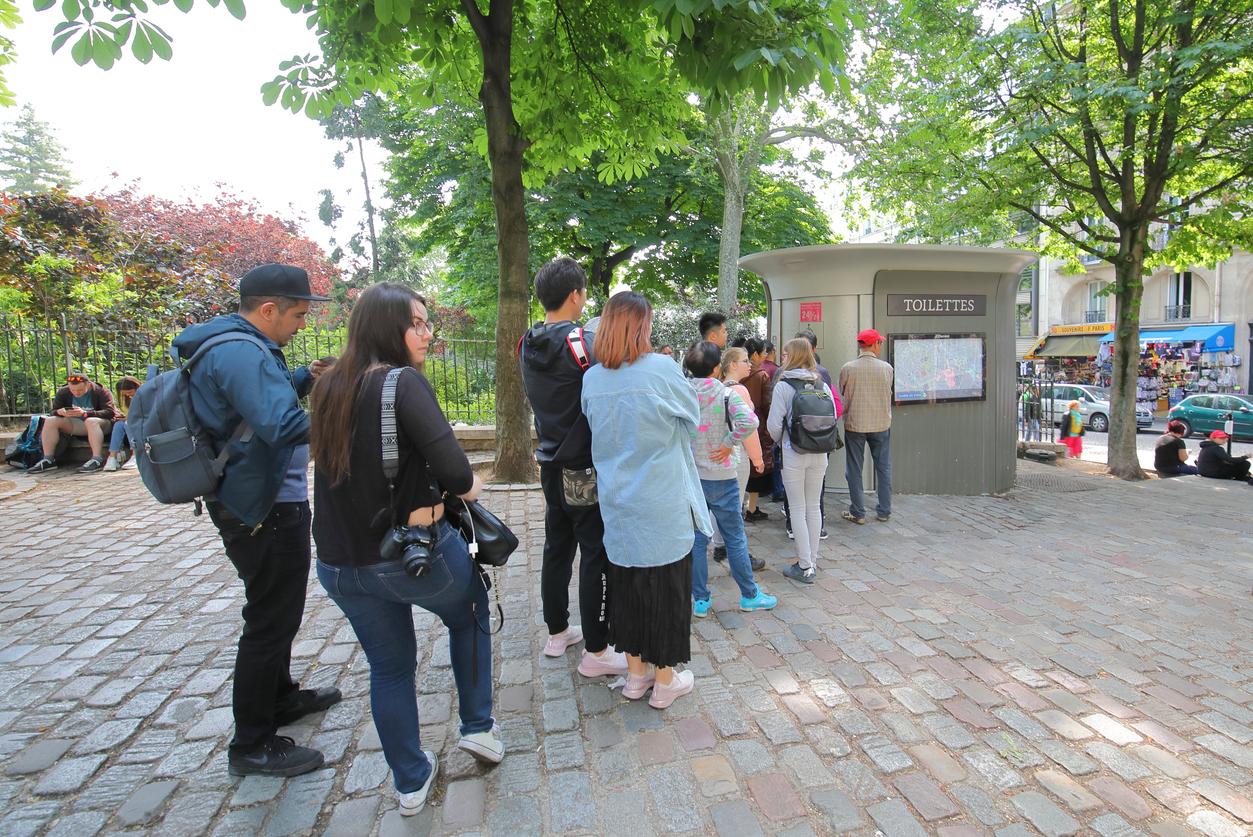According to a new study, not only does the new coronavirus infect cells much faster than SARS in 2003, but it also produces 3.2 times more virus particles in 48 hours.

- A study compared SARS-CoV-2 and the virus responsible for the SARS epidemic in 2003
- Novel coronavirus infects cells faster and produces more virus particles in 48 hours
- This is the reason why an anti-viral treatment is only effective if it is administered very quickly (48 hours) after contamination.
If the Covid-19 is so scary, it is not so much because of its mortality rate, but above all because of its terrible rate of contagiousness. In 2003, SARS infected 8,098 people worldwide in about six months before it was finally brought under control. Today, SARS-CoV-2 has already infected more than 2.4 million humans in less than three months. According to a new study published in the journal Clinical Infectious Diseasenot only does this new virus infect cells much faster, but it also produces 3.2 times more viral particles in 48 hours.
To reach this conclusion, researchers from the University of Hong Kong studied living lung tissue samples from six donors whom they infected with SARS and SARS-CoV-2. Results: “In some cases, SARS-CoV-2 replicates up to 100 times in 48 hours, compared to 10 to 20 times with SARS-CoV”explains Chu Hin, co-author of the study, to the South China Morning Post. However, despite the significant viral load caused by SARS-CoV2, it seems to react very late. The virus acts like a ninja, its replication leading to lower inflammation and production of interferons”, explains Jasper Chan Fok-woo, another co-author of the study. These are molecules of the cytokine family, known to boost the immune system.
“While SARS-CoV activates 11 pro-inflammatory gene markers out of the 13 possible types, SARS-CoV-2 activates only five”, note the researchers. Because of this weak immune response, the virus can develop very quickly and cause only minor symptoms in many patients, who are highly contagious even though they do not feel sick, making it difficult to control the epidemic.
Less than 48 hours to give effective antivirals
However, researchers are still unaware of the exact mechanisms involved.”If 2019 and 2003 SARS-CoV-2 attach and enter host cells via ACE2 [le récepteur auquel s’accroche la protéine virale]the mechanism by which the former overcomes the immune response and suppresses the production of interferons as well as pro-inflammatory cytokines to achieve a higher degree of viral replication are still elusive”, they admit. In particular, SARS-CoV-2 could contain interferon antagonist proteins that are different or that are expressed more vigorously.
These results therefore partly explain why patients affected by Covid-19 are so quickly contagious and difficult to detect. Once the virus is in the body, doctors have less than 48 hours to give antivirals capable of limiting its replication in the patient, compared to seven to ten days with SARS. Moreover, the anti-inflammatory drugs, quite effective in the case of SARS, are useless here since the new virus has its own inflammatory self-limitation mechanism. On the other hand, beta-interferon type products could be useful, suggests the virologist Yuen Kwok-yung in charge of the study.
“Even if the epidemic subsides a bit during the summer, with such low immunity, the virus will continue to spread. We will then talk about the reopening of schools by Septemberhe explains about Hong Kong. Now we’re trying to increase our testing capacity, to make sure that you really don’t have the virus, that you continue to wear the mask, that you continue to have very good hand hygiene, that you have a responsible for infection control in each office in the classroom to ensure that all of this is done correctly, to allow society to continue.”
What about the reopening of schools in France?
In France, President Emmanuel Macron announced on Sunday May 14 a deconfinement from May 11 and a gradual reopening of schools from there. This news has greatly worried the associations of teachers and parents of students who are demanding more details from the government.
“Without an emergency plan for the school, recovery is impossible without the risk of a new wave of contamination. Stop pretending!”, for example, protested the FCPE, an association of parents of students. For its co-president Rodrigo Arenas, “the government has one month to present the school emergency plan to maintain compliance with barrier gestures at school. Otherwise, parents risk not returning children to school if they risk contaminating themselves or contaminating staff. he wrote on Twitter. “If we have to return before the summer, that supposes a whole plan to get out of confinement. Test people, disinfect the premises, have masks and hydroalcoholic gel, also ensure that the students are not 35 in the classes”, meanwhile warned Frédérique Rolet, general secretary of the Snes-FSU (majority secondary union), cited by Release.
Professor Robert Cohen, specialist in childhood infections, is more nuanced regarding the announcement of the President of the Republic. If we all stay confined”the most likely is that in September few children will have had positive serology and we will find ourselves in exactly the same situation”, he explains in the podcast of Why doctor. This is why, according to him,it may be good to start reopening schools on May 11 because it will be done gradually and we will see what is possible and reasonable. This could be an interesting trial run for the start of the school year.”
On April 11, a study also published in the journal Clinical Infectious Disease showed, however, that the children were extremely less contagious. Here, the researchers looked at a nine-year-old Frenchman who had contracted the coronavirus in Contamines-Montjoie in Haute-Savoie. According to them, he would not have infected anyone in the three schools and the ski club which he then attended. Quite reassuring news, we must admit.
.
















